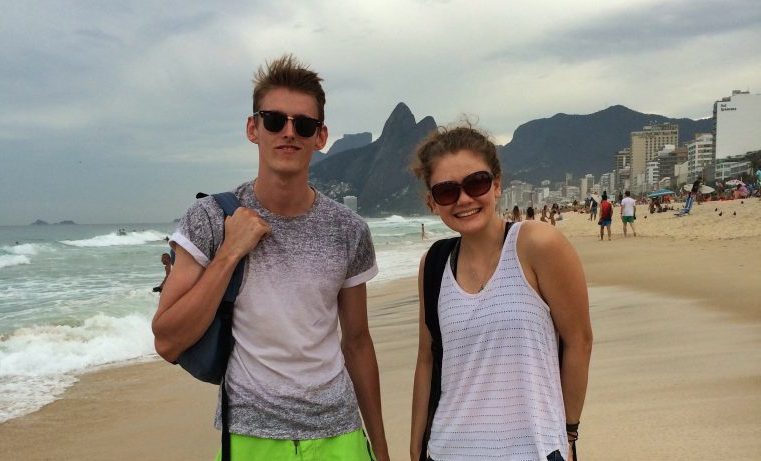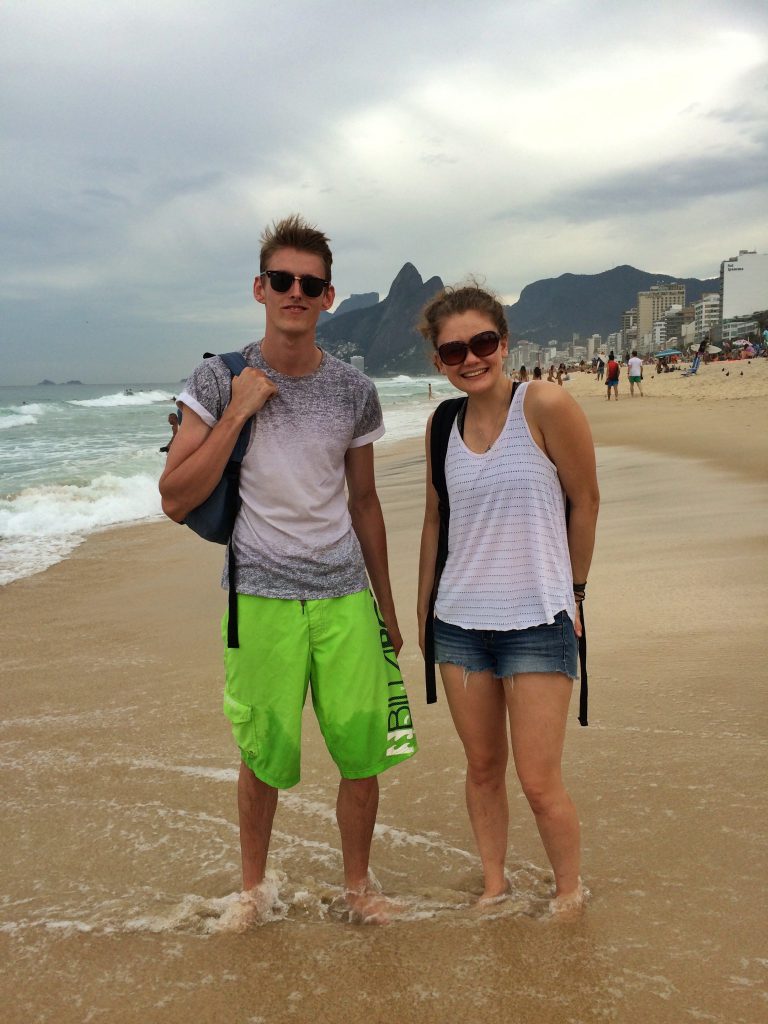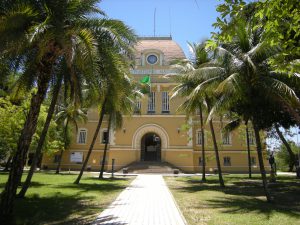
June 2, 2017, by brzjmw
Studying abroad: Kate and Chris in Brazil

Chris and Kate on Copacabana Beach during their research project in Rio De Janeiro.
If you’re interested in studying abroad during your undergraduate study at the University of Nottingham, there are a number of options available. One particularly exciting opportunity offered each year is for a number of students in the fourth year of our MSci Physics programs to conduct the research for their major research projects under the supervision of partner institutes in Brazil and China.
Two students who decided to take this challenge were Chris Duckworth (MSci Physics with Theoretical Astrophysics, 2016) and Kate Harbourne (Msci Physics with Astronomy, 2016).
Where did they go?
Kate and Chris were selected to do their fourth year research projects at the Brazilian National Observatory, in Rio de Janeiro. The cost of the trip was covered by the University and they spent three months from mid-March to mid-May doing research on cutting-edge astronomy while also enjoying the experience of living in another culture.
What did they work on?Working under the supervision of a research partner at the observatory, Chris and Kate analyzed data from some of the most powerful telescopes in the world, including the space-based Chandra X-ray telescope. Their aim was to uncover the evolutionary history of a group of galaxies, where there was evidence that a small group was crashing headlong into a larger one. Chris describes their conclusions: “We found that the subcluster was moving with a high velocity, likely undergoing significant ram pressure stripping as it passed through the intra-cluster medium of the NGC 6338 galaxy group.”
How did they enjoy the trip?
Kate says: “I had been told about the Rio trip when I first came to look around the university in 2012 and the experience more than lived up to my expectations! This was an incredible opportunity to learn in a new area of astrophysics from experts in the field. It was also confirmation that the physics community is a close and friendly one; we were looked after by fellow researchers and have made good friends for life during our 3 months in Brazil. We were very lucky and thankful to have been given this opportunity (as downtime in Rio often involved climbing through rainforest-covered mountains and exploring beaches…!) and would recommend the experience to anyone interested in studying abroad!”
Where are they now?
Both Kate and Chris have continued in astronomical research and are in the first year of their PhDs.
Chris has turned his attention to another major problem in galaxy evolution: how do galaxies form? He is at the University of St. Andrews examining the clustering of galaxies on very large scales to understand the connections between galaxies and the massive, invisible dark matter haloes in which they live.
Kate has continued globe-trotting and is now studying computational astrophysics at the International Centre for Radio Astronomy Research at the University of Western Australia in Perth. She is using state-of-the art supercomputer simulations of dwarf galaxies to find out how these small galaxies can be affected by massive supernova explosions from the death of massive stars inside them. It’s clear that the trip to Brazil made a big impression, as she says it “was the opportunity of a lifetime and I still think about it a lot – it definitely had a lot of influence on the work I’m doing today”.
No comments yet, fill out a comment to be the first


Leave a Reply